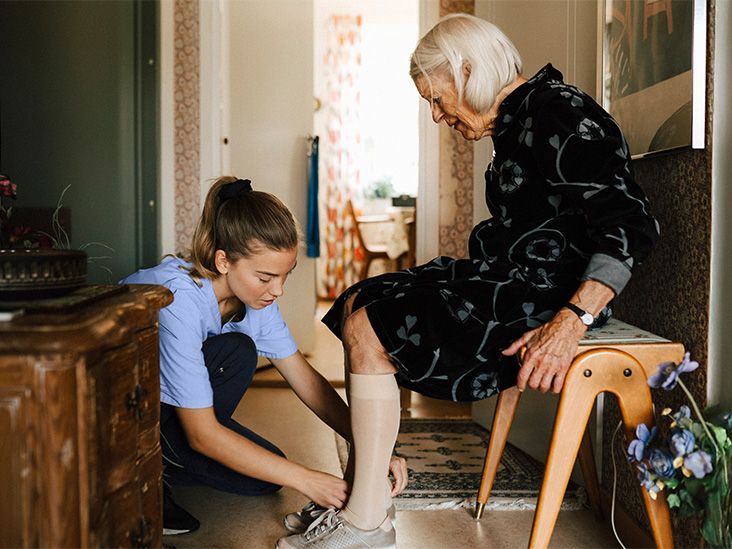Let's be honest turning 60, 70, or 80 can feel like your brain is playing tricks on you. You walk into a room and completely forget why you're there. You know someone's name is on the tip of your tongue, but it just won't come out. Sound familiar?
Here's what I want you to know: those little mental hiccups don't have to be your new normal. Your brain isn't some delicate antique that automatically breaks down with age. It's actually more like a muscle that responds beautifully to the right care and attention.
I'm not here to sell you magic pills or miracle cures. Instead, I want to share something incredible that happened in one of the largest studies ever conducted on brain health. The POINTER study followed over 2,000 seniors for more than two years, and the results were remarkable. Participants actually reversed age-related cognitive decline by one to two years and they did it through simple, everyday changes we can all make.
So what were these life-changing habits? Let's dive in together and discover how you can protect your mind as you age.
Why Brain Health Matters So Much
You know how some people in their 80s seem just as sharp as they were decades ago? Meanwhile, others struggle with memory issues much earlier. What gives?
The truth is, aging affects everyone differently, and here's the encouraging part serious memory loss and cognitive decline aren't inevitable parts of getting older. When doctors talk about normal aging, they're referring to slower processing speeds and occasional forgetfulness. But significant memory problems? That's usually a sign of underlying conditions, not just getting older.
This is where lifestyle becomes your secret weapon. While we can't change our genetics, we have incredible control over so many factors that influence how our brains age.
What's Really Happening to Your Brain
Think of your brain like a city's infrastructure. As time goes by, some roads get worn down, traffic patterns shift, and certain areas might need more attention. But a well-maintained city can function beautifully for decades, right?
The same goes for your brain. You can't control your genetic blueprint, but you absolutely can manage:
- Your blood pressure levels
- Blood sugar regulation
- Physical activity patterns
- Nutrition choices
- Social connections
These modifiable factors play a huge role in protecting your brain health as you age. According to the SPRINT MIND trial, maintaining healthy blood pressure in midlife significantly reduces your risk of mild cognitive impairment. And here's something that really gets me excited what's good for your heart is genuinely good for your brain too.
Experts at the National Institute on Aging now approach brain health as part of complete whole-body wellness, not something separate from your cardiovascular system or emotional wellbeing. This holistic perspective is game-changing news for all of us.
The Three Pillars of Strong Brain Health
Based on that incredible POINTER study I mentioned earlier, researchers identified three powerful strategies that actually work in protecting cognitive function as we age. Let's explore each one together.
Move Your Body, Boost Your Brain
I know what you might be thinking "I'm not training for a marathon!" And guess what? You don't have to be. The beautiful thing about exercise and brain health is that even modest amounts of movement can trigger some amazing protective responses in your brain.
Here's what research shows really works:
The Movement That Matters Most
Start with aerobic exercise that's anything that gets your heart pumping. We're talking about 30 minutes, four times a week. This doesn't mean you need to run marathons. Brisk walking, gentle cycling, or even swimming laps at your own pace can work wonders.
Your brain loves this kind of activity because it:
- Boosts blood flow to brain tissues
- Increases glucose metabolism (which is basically brain fuel)
- Triggers the release of brain-protecting proteins
Strength and balance training twice a week helps prevent falls something that becomes increasingly important as we age. And don't overlook stretching. Those 10-15 minutes of gentle movement can do amazing things for circulation throughout your body, including your brain.
One of the most inspiring findings from the POINTER study was seeing actual growth in the hippocampus that's your brain's memory center in participants who committed to regular physical activity. Pretty amazing, right?
Starting Where You Are
Here's my advice: start ridiculously small and build from there. Instead of saying "I need to exercise for an hour," try something like "I'll take a 10-minute walk after dinner." Or "I'll walk to the mailbox and back." These tiny victories build momentum and confidence.
I love the story of Phyllis Jones, a 66-year-old participant in the POINTER study. She started with just walking to her mailbox, and now she's doing virtual reality workouts with friends online. Progress isn't about perfection it's about showing up consistently.
Nourish Your Mind Through Food
What you put on your plate directly impacts how your brain functions. Forget trendy diets or restrictive eating patterns. We're talking about nourishing your body with foods that genuinely support cognitive health.
The MIND Diet Science-Backed Brain Food
The MIND diet combines the best elements of the Mediterranean and DASH diets, specifically designed to fight cognitive decline. Studies show that people following this approach often have brains that function as much as 7.5 years younger than their chronological age.
| Eat Most Days | Limit or Avoid |
|---|---|
| Leafy greens (kale, spinach) | Red meat |
| Berries (blueberries, strawberries) | Fried/fast food |
| Whole grains | Butter & margarine |
| Nuts, beans, legumes | Cheese |
| Olive oil (2 tbsp/day) | Sweets (max 4x/week) |
| Fish (especially fatty: salmon) | Processed snacks |
These aren't random recommendations. Each food choice in the MIND diet is backed by research showing its specific benefits for brain health. The combination of antioxidants, healthy fats, and nutrients creates an environment where your brain can thrive.
Making Simple Swaps
You don't need to overhaul your entire diet overnight. Try these easy swaps that anyone can make:
- Use olive oil instead of butter for cooking
- Snack on a handful of nuts instead of chips
- Replace soda with water infused with lemon or cucumber
- Add berries to your morning oatmeal or smoothies
Interestingly, a recent clinical trial found that daily multivitamins did show small but measurable improvements in memory for older adults. But remember, whole foods still take priority supplements should complement, not replace, good nutrition.
Challenge and Connect for Cognitive Vitality
Your brain absolutely thrives on novelty and connection. Think of it like a garden it needs new seeds, fresh water, and good soil to flourish.
Brain Exercises That Actually Work
Yes, crosswords and Sudoku are fun, but the real cognitive gains come from learning something genuinely new. Here are some ideas that participants in brain health studies have found both enjoyable and effective:
- Learn a language (try apps like Duolingo, or listen to language lessons during your commute)
- Play a musical instrument, even if you're starting from scratch
- Take a class in something completely different digital photography, pottery, or quilting
- Use evidence-based brain-training programs like BrainHQ, which was used in the POINTER study
Here's a word of caution, though be careful with those flashy "brain game" apps that promise miraculous results. Look for programs with actual peer-reviewed research backing their claims, not just slick marketing.
The Social Connection Factor
This might surprise you, but loneliness is now recognized as a formal risk factor for cognitive decline. In the POINTER study, researchers actually made socializing a required component, and it made a measurable difference in participants' brain health.
Finding ways to stay socially engaged doesn't have to be complicated. Consider:
- Joining clubs based on your interests book clubs, walking groups, or bridge games
- Volunteering for causes you care about
- Regular video calls with family and friends (research like the I-CONECT trial showed that consistent social connection through technology can actually reduce cognitive decline)
Phyllis Jones shared something beautiful about her experience in the study: "I found my best friend in the study. Now we travel together she's 81, and she keeps me young." It's proof that meaningful connections can enrich our lives at any age.
Hidden Brain Protectors in Your Health Routine
Sometimes the most powerful ways to protect your brain health come from managing the basics of good health. You can't really separate brain wellness from overall physical wellbeing.
Blood Pressure Your Brain's Insurance Policy
Did you know that high blood pressure in your 40s and 50s significantly increases your risk of developing dementia later in life? It's true, and it's why maintaining healthy blood pressure should be a priority for brain health.
The SPRINT MIND study suggests aiming for a systolic blood pressure below 120 mmHg. You can work toward this through:
- Regular physical activity (see that exercise section again!)
- Following a lower-salt diet
- Maintaining a healthy weight
- Taking prescribed medications as directed
It's one of those areas where taking action now pays dividends decades later.
Watch Those Medications
This is something I wish more people knew about. Certain common medications can actually cause confusion, memory problems, or what doctors call "delirium." These include:
- Antihistamines like Benadryl
- Sleep aids including Ambien or excessive melatonin
- Bladder control medications
- Muscle relaxants
- Some antipsychotic medications
Always have an honest conversation with your doctor about this. Ask specifically, "Could this medication be affecting my thinking?" Sometimes there are alternatives that work just as well without the cognitive side effects.
What Doesn't Work (And Why That's Actually Good News)
Let's clear up some common misconceptions about brain health. I know it can be frustrating to hear that there's no magic bullet, but here's the flip side the approaches that do work are completely within your control and don't cost a fortune.
The Supplement Truth
Despite what flashy advertisements claim, no vitamin or supplement has received FDA approval to prevent Alzheimer's disease or other forms of dementia. While omega-3s, ginkgo biloba, and curcumin have interesting research behind them, the evidence remains mixed.
Vitamins D and B12 are important for brain function but only if you're actually deficient. Taking mega-doses won't give you superpowers. However, a daily multivitamin did show modest memory improvements in some clinical trials, so it's not entirely without merit.
The key takeaway? Trust the science, not celebrity endorsements. The research is ongoing, and we want to follow what actual studies show rather than marketing hype.
Can You Really Reverse Dementia?
This is a question I get asked often. For now, there's no cure for Alzheimer's disease. But here's what we do know:
- Early-stage cognitive decline can sometimes be slowed or even improved with intensive lifestyle changes
- Prevention is absolutely more effective than treatment after symptoms appear
- Intensive programs like those developed by Dr. Dean Ornish have shown measurable improvements in people with early cognitive issues
The message is clear: focusing on the proven strategies movement, nutrition, and connection gives you the best chance of maintaining sharp thinking as you age.
Your Brain Health Journey Starts Now
If you're feeling worried about memory changes, please know this you're definitely not alone, and you're absolutely not powerless. The research gives us real, actionable ways to protect cognitive function as we age.
You don't need to transform your entire life overnight. In fact, small, consistent changes often work better than dramatic overhauls that are impossible to maintain. The POINTER study participants proved this beautifully modest changes done regularly lead to significant improvements in cognitive health.
Here are some simple things you can start today:
- Take a 10-minute walk after lunch
- Call or text a friend you haven't heard from in a while
- Swap butter for olive oil in your cooking
- Try learning one new word each day
These aren't revolutionary changes, but they are revolutionary in their impact when practiced consistently.
Your brain is remarkable it's been with you through every experience, every memory, every dream. It deserves your attention and care. And the beauty of brain health is that it's never too late to start making positive changes.
Worried about where to begin or what steps matter most for your situation? Talk to your doctor. They're your partner in this journey. You can also explore resources from the National Institute on Aging at their official website for additional science-backed tools and guidance.
The important thing is taking that first step. Whether it's lacing up your walking shoes, trying a new recipe with leafy greens, or reaching out to connect with someone you care about your brain is counting on you. And honestly? It's pretty exciting to think about all the sharp, vibrant thinking that's still ahead of you.
FAQs
What are the best ways to maintain brain health while aging?
Regular physical activity, a brain-healthy diet like the MIND diet, mental challenges, and strong social connections can help preserve cognitive function as you age.
Can lifestyle changes really improve brain health in older adults?
Yes, studies like the POINTER trial show that lifestyle changes including exercise, healthy eating, and cognitive training can reverse cognitive decline by up to two years.
Which foods support aging brain health?
Foods rich in antioxidants and healthy fats such as leafy greens, berries, fish, nuts, and olive oil are strongly linked to better brain function and protection against decline.
How does social interaction affect cognitive aging?
Staying socially active reduces the risk of cognitive decline. Loneliness is a known risk factor, while meaningful connections can enhance mental sharpness and emotional well-being.
Do brain games actually help prevent memory loss?
Only evidence-based brain training programs show measurable benefits. Simple puzzles help, but learning new skills like a language or instrument provide stronger cognitive stimulation.
Disclaimer: This article is for informational purposes only and does not constitute medical advice. Always consult with a healthcare professional before starting any new treatment regimen.
Related Coverage
Find the right Medicare in Connecticut with our simple guide to coverage options, enrollment tips, and plan comparisons....
Knowing the red flags like isolation, mood swings, controlling behavior and fear in toxic relationships can empower you to regain your self-worth and walk away....
Learn about the different Medicare card types and how they affect your healthcare coverage. Know which card to use when....
Learn how to choose the best glycemic index (gi) brands of bread, cereal, pasta and more for managing blood sugar if you have diabetes or prediabetes....
Death's inevitability contains much that remains unknown, yet insights from research provide wisdom on how we might approach our remaining days with more purpose and presence....
Does morphine hasten death for the terminally ill? Examining the medical evidence on balancing pain relief with ethical concerns about prolonging or speeding up dying....
Get clear guidance on Medicare Part B enrollment, including eligibility, costs, and how to avoid late penalties....
Find the best Medicare options in Oklahoma with our simple guide. Learn about plans, enrollment, and help available in the Sooner State....
Learn what Medicare home care services are covered, eligibility requirements, costs, and how to get started with home health benefits....
Explore the most common health challenges facing senior citizens and learn effective strategies for managing age-related conditions and maintaining well-being as you get older....









